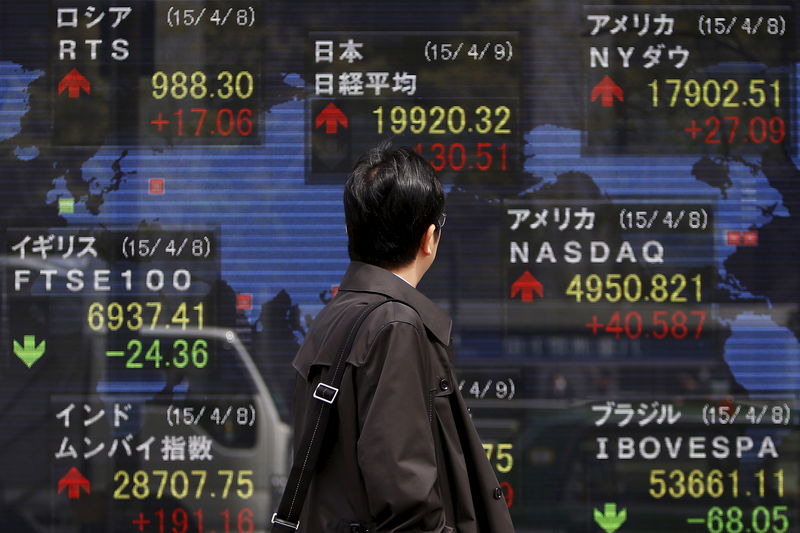
© Reuters.
By Gina Lee
Investing.com – Asia Pacific stocks were mostly up on Monday morning, as the war in Ukraine sparked by Russia’s invasion on Feb. 24 enters a second month. The risk of an economic downturn from tightening U.S. monetary policy is also weighing on markets.
Japan’s was down 0.41% by 11:27 PM ET (3:27 AM GMT) while South Korea’s inched up 0.07%.
In Australia, the gained 0.45%.
Hong Kong’s rose 1.01%.
China’s edged up 0.19% while the fell 0.68%, with to curb rising numbers of COVID-19 cases.
U.S. Treasuries were mixed after a bond rout, triggered by fears that the U.S. Federal Reserve will hike interest-rate hikes to curb inflation. The fell but remained above a technical trend line that has effectively served as a ceiling since the late 1980s. Bonds also fell in Australia and New Zealand.
Commodities supply chains continue to be disrupted by the war in Ukraine, alongside the trend towards tighter central bank monetary policies. Investors are pricing in two full percentage points of Fed rate rises for the rest of the year, which has led to further volatility in the stocks, bonds and currencies markets.
“The Fed is trying to create a Goldilocks scenario by engineering a soft landing,” Nuveen chief investment officer Saira Malik told Bloomberg. “The equity markets are buying it and the bond markets aren’t.”
Malik added she expects only a moderate impact on global growth from the war, as economic expansion will be strong enough to overcome inflation.
Ukraine and Russia will reportedly resume in-person talks within the week, with the U.S. in damage control mode after President Joe Biden said that Vladimir Putin “cannot remain in power.” Secretary of State Antony Blinken quickly clarified that the U.S. does not have a strategy for regime change.
Although global shares have clawed back some losses from the Russian invasion, other investors are questioning the gains’ durability.
It may be that what we’re seeing is “more a bear-market rally,” Pepperstone Financial Pty head of research Chris Weston said in a note. Investment flows related to portfolio rebalancing at the end of March 2022 and the first quarter could lead to “big and questionable moves,” the note added.
Meanwhile, Biden will release his 2023 budget later in the day, and Australia hands down its annual budget on Tuesday.
Bank of England Governor Andrew Bailey to speak later in the day, with Philadelphia Fed President Patrick Harker, Richmond Fed President Thomas Barkin, and New York Fed President John Williams speaking on Tuesday, Wednesday, and Thursday respectively.
On the data front, the U.S. releases its on Wednesday, followed by the jobs report on Friday. China will also release its and purchasing managers indexes (PMI) on Thursday, with the to follow a day later.
Fusion Media or anyone involved with Fusion Media will not accept any liability for loss or damage as a result of reliance on the information including data, quotes, charts and buy/sell signals contained within this website. Please be fully informed regarding the risks and costs associated with trading the financial markets, it is one of the riskiest investment forms possible.


Be the first to comment